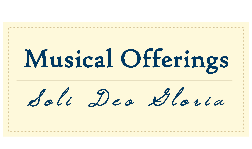Publication Date
6-26-2015
Document Type
Article
Keywords
Language, musical meaning, holism, presence of God
Abstract
Throughout history, music has moved people in powerful ways, so much so that, at times, it leaves them speechless. They realize that it is a song, full of notes and rhythms, yet at the same time, it makes them become profoundly aware that there is something more, humming just below the surface. My presentation seeks to enter into this music moment by asking why these types of moments even occur. Does music speak or communicate? If so, does it communicate something meaningful and significant? What is the mechanism by which music conveys this meaning? How can this meaning be articulated in words?
Many fields of science such as neuroimaging and psychoacoustics have revealed an empirical connection between language and music, namely that the human brain processes and understands music as communication and speech. Building upon this, I then discuss musical meaning by stating that music has both intrinsic, structural meaning, as well as extrinsic, referential meaning, and that together, these two paradigms of meaning aid the listener in experiencing the full nature of the music itself. I next introduce the field of theology, showing how throughout the Bible, all of creation has musically celebrated the presence of an immanently transcendent God. With all of these things in mind, I postulate that music has the capacity to act as a channel through which one can hear a linguistic God speaking vitality, order, beauty, depth, structure, and wonder into His creation by His Word and Spirit. The presentation concludes by asserting that music has the capacity to reveal the presence of God in our everyday lives through the divine realities of hope, faith, and love.
Volume
6
Issue
1
DOI
10.15385/jmo.2015.6.1.1
Recommended Citation
Cates, Brian R.
(2015)
"He Started the Whole World Singing a Song,"
Musical Offerings: Vol. 6:
No.
1, Article 1.
DOI: 10.15385/jmo.2015.6.1.1
Available at:
https://digitalcommons.cedarville.edu/musicalofferings/vol6/iss1/1
Creative Commons License

This work is licensed under a Creative Commons Attribution-Noncommercial-No Derivative Works 4.0 License.
Disclaimer
DigitalCommons@Cedarville provides a publication platform for fully open access journals, which means that all articles are available on the Internet to all users immediately upon publication. However, the opinions and sentiments expressed by the authors of articles published in our journals do not necessarily indicate the endorsement or reflect the views of DigitalCommons@Cedarville, the Centennial Library, or Cedarville University and its employees. The authors are solely responsible for the content of their work. Please address questions to dc@cedarville.edu.
Included in
Ethnomusicology Commons, Fine Arts Commons, Linguistics Commons, Medical Sciences Commons, Musicology Commons, Music Performance Commons, Music Theory Commons, Religious Thought, Theology and Philosophy of Religion Commons

